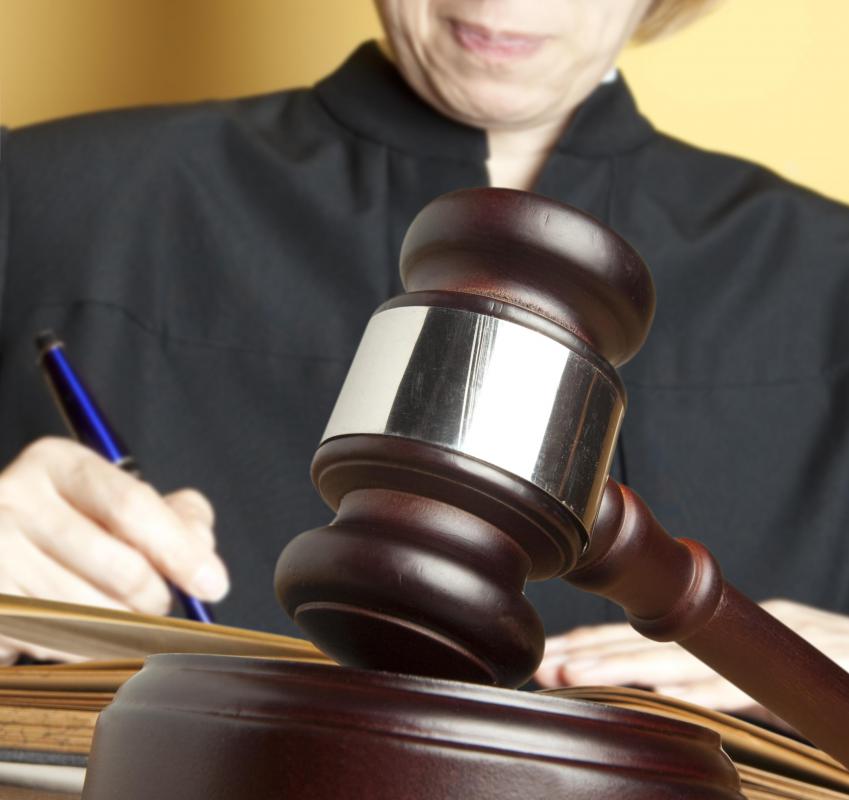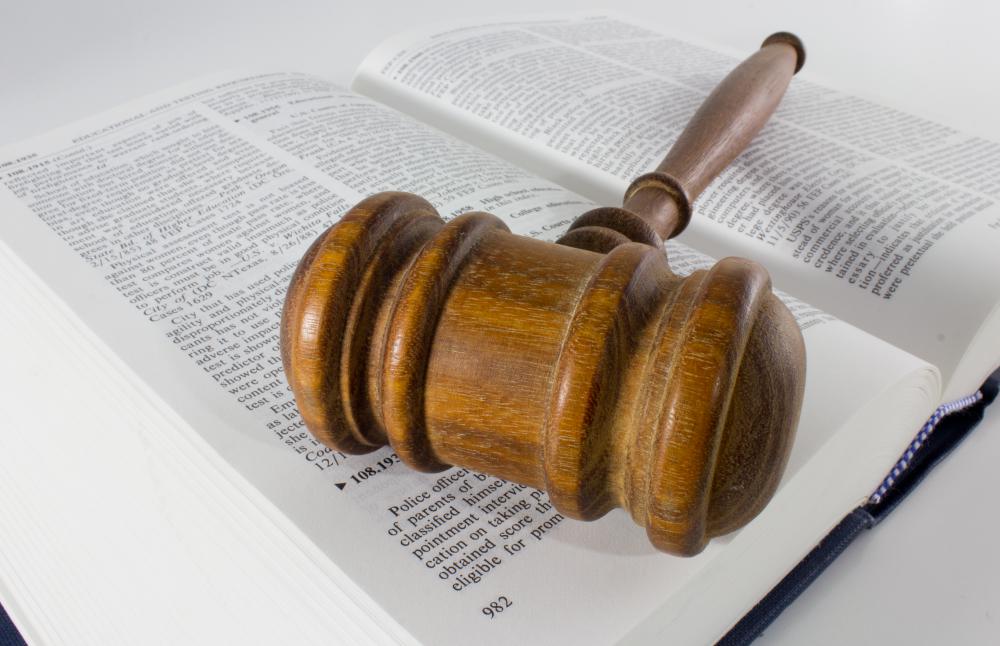At WiseGEEK, we're committed to delivering accurate, trustworthy information. Our expert-authored content is rigorously fact-checked and sourced from credible authorities. Discover how we uphold the highest standards in providing you with reliable knowledge.
What is Judicial Activism?
Judicial activism refers to court decisions that arguably go beyond applying and interpreting the law and extend into the realm of changing or creating laws, or going against legal precedents. Arguably, these decisions are made based on the judges' personal philosophies or political affiliations. When a judge makes a court ruling that is not in accordance with constitutional or statutory law or legal precedent, that judge may be said to be "legislating from the bench." When a judge is thought to hold back from being a "judicial activist," he or she may be said to have exercised judicial restraint.
Though the term may be applied to any number of legal and governmental systems in the world, the United States system can be used as an example. In the US, a system of "checks and balances" is imposed to prevent any one of the three branches of the federal government (i.e., the executive branch, the legislative branch, and the judicial branch) from becoming too powerful. Under the separation of powers doctrine, Congress has the power to create laws, whereas the judicial branch is charged with applying the law, and interpreting those parts of the law that might have been drafted in a vague way. Where that line between legal interpretation and creation of the law is, is often a matter of vigorous legal debate. Often, those arguments lie on political lines.

Some might argue, that the Supreme Court's decision in Heller, where the right to bear arms as granted by the Second Amendment was held to be an individual right as opposed to a right meant to be conveyed upon regulated militias, was an activist one. Alternatively, some may argue that the holding in Roe, which made abortion a woman's individual right, went against a strict interpretation of the Constitution, which didn't expressly convey that right. Some rulings that are arguably examples of activism, however, are supported by both liberals and conservatives. The ruling in Brown v. Board of Education which eliminated segregation in public schools, may be one such example.

Judicial activism can exist at virtually any level, including state, federal, and the Supreme Court. Often, when it arises at the Supreme Court level, another legal debate is implicated — the theories of Constitutional interpretation. Originalists, for example, are generally inclined to apply the Constitution strictly, according to the precise terms used by the authors of the document. Non-originalists believe that some interpretation is permissible and that that was in fact the intent of the authors in creating the Constitution as a living document. Depending on which form of Constitutional interpretation one ascribes to will affect how much interpretation is permissible by judges.
AS FEATURED ON:
AS FEATURED ON:















Discussion Comments
You're mixing terms here. Judicial activism, as you say, constitutes a judge using "his or her own opinions" - not as you conclude, making judgment on what "violates people's rights". A judge does have the authority to determine what "violates people's rights"; that is what his legal education enables him to do. He or she does not have the ability to use "his or her own opinions" about what is fundamentally a "good" or an "evil" - that ought always, and our forefathers intended, such issues to be left to the people by virtue of the representatives in the legislature whom they have elected to reflect their notions of what laws to enact.
The judge only has the authority to invalidate such laws if they are unconstitutional and to interpret laws and what legislators meant to enact when they enacted them.
when seen from the present scenario of happenings, may it be political or administrative, the way the scams are being explored by CAG or similar agency, and it is clear there is no check on such happenings, then judicial activism is required in India.
Let somebody take the initiation and bring the things into the light. At least the next generation should realize and evaluate the things in the right way, unlike the present politicians. Everywhere the judiciary is being drafted to enter the scene to set things right. There is no other way to go.
Judicial activism is a tool used by people who disagree with a ruling. That's it. Judicial review has been an established part of our justice system for a very long time.
No court creates laws but they have the duty to determine if actions or laws are unconstitutional; that is their job and their purpose. So they do not write legislation but can through rulings force legislatures to rewrite laws.
We are ever more becoming an ignorant country. To state that abortion is a state's right issue is but an opinion coming from someone who doesn't have the authority guaranteed by the US constitution. The court has declared through Rowe and again through Casey that abortion is a protected right.
Thanks to the new global liberal agenda, women, non-whites and the youth together with a group of influential whites motivated by self interest have sold out the heritage of western civilization at the expense of all white men over forty. While we have known this since Sophocles, never before has this rage been official policy.
Judicial activism seems to be left open by the forsaking of common law.
When, if ever, is it appropriate for a judge to engage in judicial activism and apply his or her own jurisprudential principles in seeking to make, rather than to interpret, the law?
Hi, this is Ibani Bridgeford. My opinion on judicial activism is that it should not be a problem. I think this because in some cases, it is necessary for a judge to use his/her opinion. Now usually, a judge would make a decision according to the constitution or what the law is, but some things that are legal or that aren't legal are usually not in the constitution. Technically, most decisions about what should or shouldn't be legal are left up to the state. Therefore, if a judge disagrees with what the law says, they should be able to rule based on what they think. Now don't get me wrong, I am not saying that judges should just totally go against the law and the constitution. I am saying that they should be able to rule against the law if it violates people's rights.
Post your comments